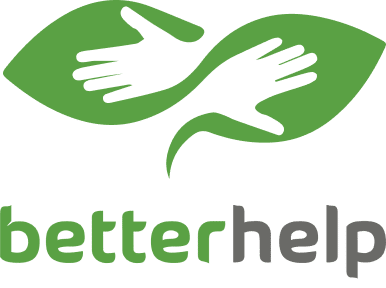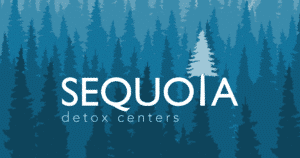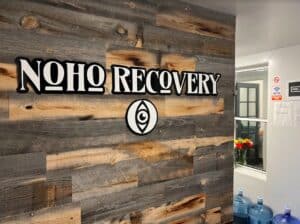Marijuana Addiction And Abuse
Understanding Marijuana
Marijuana is a drug acquired from the Cannabis plant. The plant is typically dried out, ground up, and smoked (in paper, like a cigarette, or in a pipe, like tobacco). Marijuana also comes in the form of “edibles.” Edibles are foods, such as baked goods and candies, that contain either one or both of Marijuana’s active ingredients: tetrahydrocannabinol (THC) or cannabidiol (CBD). Like smoking, edibles produce the same effects, with a differing amount of time between intake and feeling the effects.
There are multiple ways to use Marijuana; some people consume a resin-like substance (a byproduct of crystal-like structures that come from harvesting or smoking the ground-up cannabis flower) that produces a far more intense high. This substance, often referred to as “wax” or “shatter,” may be a viscous liquid, a wax-like substance (thus the name), or a hard and crystallized material similar to hard candy that is typically vaporized and inhaled. Often butane or isopropyl alcohol are involved in the production of the substance which can pose an incredible danger to the user.
Online Marijuana Addiction Counseling

Get professional help from an addiction and mental health counselor from BetterHelp by phone, video, or live-chat.
Take the Quiz. Get Matched. Begin Therapy.

Online therapy can help you with long term addiction support. Connect with a therapist from Talkspace anytime, anywhere.
Get matched with a therapist now.
Paid Advertising. We may receive advertising fees if you follow links to promoted online therapy websites.
Marijuana is legal in some states and illegal in others. In some states, only medical use is legal; some others have also legalized recreational Marijuana. Medically, Marijuana is used for stress and pain relief and to increase appetite. Recreationally, Marijuana is used for its calming effects. Street names for Marijuana include: Pot, Dope, Ganja, Grass, Mary Jane, Reefer, and Weed.
Marijuana has a long history of legislation for and against its use. Fueled by mixed feelings and misinformation, confusion about the existence and risks of Marijuana addiction is still contested and not fully understood. However, while perhaps not in the well-known, traditional sense, Marijuana addiction and withdrawal do exist.
Marijuana Effects And Abuse
Marijuana is a Psychoactive drug that alters perception. Marijuana contains THC: the chemical compound that causes the drug’s psychedelic, “high.” THC also determines the potency and strength of the substance. The effects of Marijuana may be different for everyone and depend on how it is consumed; smoking Marijuana produces a faster, shorter-lived high than taking it orally. Wax or shatter affects the user immediately and may last for hours depending on the concentration of THC.
The effects of Marijuana include:
- Feelings of happiness
- Mild hallucinations
- Increased appetite
- Reduced anxiety
Due to the ever-evolving regulations on Marijuana’s legality, the substance remains suspended somewhere between “potentially beneficial” and the level one substance it has historically been classified as. In 2020, 34.5% of young adults aged 18-25 reported using Marijuana in the past year, illustrating the highest percentage in the population as adults older than 26 and adolescents between 10-17 represented 16.3% and 20.1% respectively.
CBD: The Other Active Ingredient
Though the most well-known active ingredient—and the cause of most concern—is THC, Marijuana also contains the compound cannabidiol or CBD. Unlike THC which binds to receptors in the brain that control and regulate mood, appetite, and pain, CBD is linked with other elements in the body more in line with overall wellness. More research is needed to determine the relationship between CBD and decreased anxiety, insomnia, or chronic pain, but the FDA has approved the use of CBD for epilepsy. People have also found it useful in treating chronic, ongoing conditions like arthritis, Crohn’s disease, diabetes, and multiple sclerosis, but only with consultation and direction from a medical professional.
Increasing THC Content In Marijuana
Studies from across the world, as recently as 2017, illustrate that the THC content in cannabis resin and herbal cannabis has increased by .57% and .29% respectively each year since 1975. Thus, between 1970 and 2020 the potency of THC increased by 28.5% and since THC is associated with the mind-altering, “high,” symptoms, some researchers are finding that with a higher concentration comes an increased risk for psychosis and potential dependence or addiction. However, there is also research that shows that though higher THC levels increase the amount of the compound found in the user’s blood, it does not necessarily affect the intensity of intoxication. This discrepancy is nothing if not proof that there is still much to learn about Marijuana, the consequences and potential benefits, and its impact on overall health and wellbeing.
Addiction To Marijuana
Marijuana addiction can be clinically diagnosed and have a negative impact on the person’s life. People can develop a psychological dependence on Marijuana in the same way other addictions develop.
When an individual uses Marijuana, cannabinoid receptors in the brain are activated by a neurotransmitter called anandamide. THC mimics and blocks the actions of natural neurotransmitters like anandamide, to the point where, eventually, and after prolonged use the body no longer produces sufficient anandamide on its own. In general, an addiction to Marijuana (also known as cannabis/Marijuana use disorder) is only diagnosed in severe cases; according to the CDC, of those who use Marijuana, roughly 3 in 10 people meet the qualifications for a use disorder.
However, the risks are increased in those who begin using the drug in their teens and in those who use more frequently; recent research shows that individuals who begin using Marijuana before the age of 18 are 4-7 times more likely to develop a Marijuana use disorder than their older counterparts. Dependence on the substance happens when the brain adapts to the drug and the externally produced endocannabinoid neurotransmitters, resulting in a reduced sensitivity to and production of that which is created naturally.
Common signs of problematic Marijuana use include, but are not limited to:
- Using more of the substance than intended or requiring more to achieve the same high
- Continuing to use Marijuana despite negative consequences like physical or psychological concerns
- Neglecting or falling behind on responsibilities due to excessive Marijuana use
- Prioritizing Marijuana over previously enjoyable activities or time spent with friends or family
- Experiencing uncomfortable withdrawal symptoms when stopping or cutting back on Marijuana consumption
Find out more about symptoms and warning signs of Marijuana addiction.
Check if my insurance covers rehab
Addiction Center is not affiliated with any insurance.
Marijuana And Other Drugs
Marijuana has long been called a gateway drug because of the parallels drawn between those who use Marijuana (usually in their teens) and then experiment with harder substances down the line and those who start off with more illicit substances. Generally though, it has not been explicitly proven that there is a clear correlation between Marijuana use and that of drugs like Cocaine, Heroin, or Meth later in life. While there are some studies that compare longitudinal data examining such factors as alcohol use and early exposure with that of eventual Marijuana use, most individuals who do consume Marijuana will not use other, harder drugs. The National Institute on Drug Abuse (NIDA) says that elements and circumstances such as the social environment in which a person grows up is equally as important and influential.
An alternative to the gateway-drug hypothesis is that people who are more vulnerable to drug-taking are simply more likely to start with readily available substances such as marijuana, tobacco, or alcohol, and their social interactions with others who use drugs increases their chances of trying other drugs.
Looking for a place to start?
Join the thousands of people that have called a treatment provider for rehab information.
Free and confidential
Available 24/7
Access to professional treatment
Marijuana Abuse Statistics
18%
In 2019, 48.2 million Americans (18%) used the substance at least one time.
3 in 10
Of those who use the drug, 3 in 10 meet the requirements of having a Marijuana use disorder (MUD).
30.5%
In 2021, 30.5% of 12th graders reported cannabis use, along with 17.3% of 10th graders and 7.1% of 8th graders.
Treating A Marijuana Addiction
Some people who have been using Marijuana frequently over a long period of time struggle to stop using on their own. Just like any other addiction, asking for help is the most effective way to quit. Treatment options include inpatient rehab, outpatient rehab, support groups, and therapy. Contact a treatment provider for rehab-related help.
Overcome Marijuana Addiction

Get professional help from an addiction and mental health counselor from BetterHelp by phone, video, or live-chat.
Take the Quiz. Get Matched. Begin Therapy.

Online therapy can help you with long term addiction support. Connect with a therapist from Talkspace anytime, anywhere.
Get matched with a therapist now.

Begin making positive changes with Online-Therapy.com. Quality online therapy, from the comfort of home.
Answer a few questions to get started.
Paid Advertising. We may receive advertising fees if you follow links to promoted online therapy websites.
Published:
Author
Jeffrey Juergens

-
Jeffrey Juergens earned his Bachelor’s and Juris Doctor from the University of Florida. Jeffrey’s desire to help others led him to focus on economic and social development and policy making. After graduation, he decided to pursue his passion of writing and editing. Jeffrey’s mission is to educate and inform the public on addiction issues and help those in need of treatment find the best option for them.
- More from Jeffrey Juergens
Reviewed by Certified Addiction Professional:
Theresa Parisi

Theresa Parisi is a Certified Addiction Professional (CAP), Certified Behavioral Health Case Manager (CBHCM), and International Certified Alcohol and Drug Counselor (ICADC) with over 12 years of experience in the addiction treatment field.
- More from Theresa Parisi
Sources


Recovery Starts Today
Call Now For Addiction Support



Newport Academy – Teen Rehab Center
Port Townsend , WA


Sequoia Detox Centers
Spokane Valley , WA



Bayside Marin Treatment Center
San Rafael , CA

Newport Institute for Young Adults
Sunol , CA

The Camp Recovery Center
Scotts Valley , CA

Moonlight Mountain Recovery – Nampa
Nampa , ID


Moonlight Mountain Recovery
Pocatello , ID



Hollywood Hills Recovery
Los Angelos , CA